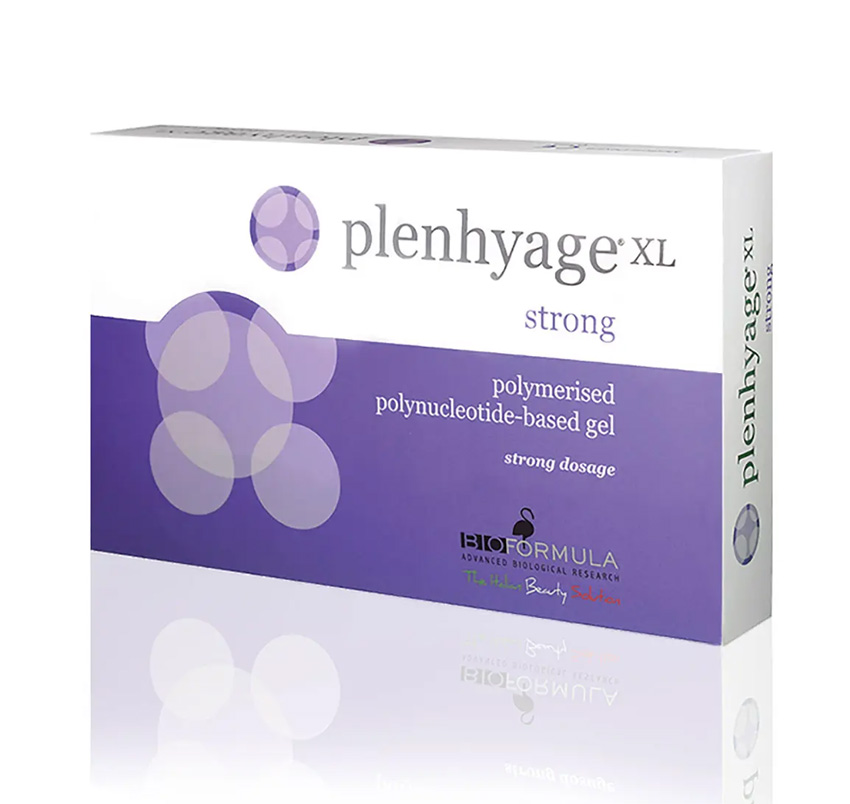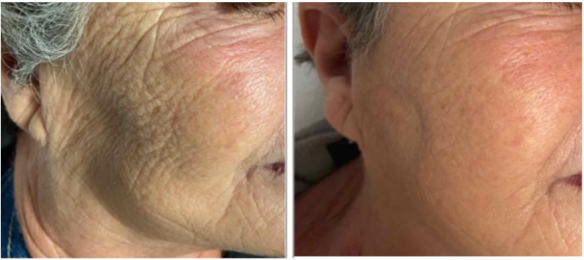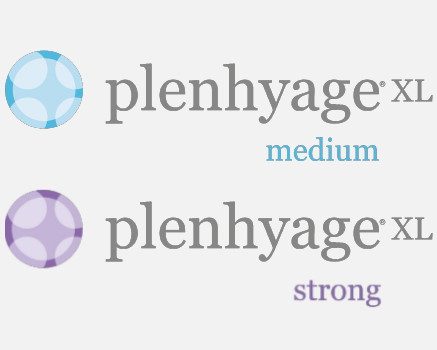
What are polynucleotides?
Polynucleoltides (PN) are an injectable skin treatment which is designed to help tissue repair. It improves skin quality, thickness, hydration, and promotes new collagen formation.
This polymerised, polynucleotide-based injectable gel works by stimulating fibroblasts, encouraging cell turnover, improving elasticity, boosting collagen production and hydrating the skin.
Polynucleotides have a host of potential applications, including treatment for acne scarring, hyperpigmentation, and rosacea as well as the signs of ageing. They are also very effective in treating hair restoration and growth.
Often we can combine polynucleotide treatments with platelet rich plasma (PRP)
In addition to treatments for the scalp, upper, mid and lower face, Polynucleotides can also be used to treat the neck, décolletage, inner arms, thighs, and knees. It is also particularly useful for difficult areas such as the neck and beneath the eyes.
Before and after

Research and clinical evidence
Research studies have shown the following effects:
- 115% increase in skin hydration
- Over 50% increase in skin thickness
- 47% increase in collagen production
- 38% increase in skin elasticity
- Reduction in inflammatory redness and improvement in rosacea and acne
- Improvement in acne scarring
- Reduction in pigmentation resulting from sun exposure
- PNs can help stimulate hair follicles, increase blood flow to the scalp, and promote the growth of thicker, healthier hair. A study published in the Journal of Dermatology and Clinical Research highlighted the potential of polynucleotides in improving hair density and overall hair quality.
The Mastelli range of polynucletides
1. Plenhyage Medium
2. Plenhyage Strong
3. Newest
4. Plinest
5. Plinest Hair
6. Plinest Eyes

FAQs – polynucleotides
Are polynucleotides like a a dermal filler?
No, dermal fillers simply add volume to the skin.
PNs are different, in that they stimulates regeneration rather than lift and volumise.
PNs are injected into the skin using a cannula or fine microblus technique.
Are polynucleotides a skin booster?
The key ingredients in skin boosters are usually hyaluronic acid and amino acids. These work to add volume, hydration and a filling effect. However, they do not have a regeneration action like PNs.
Polynucleotides boost fibroblast production, induce tissue repair processes, reduce inflammatory process, regulate melanogenesis, promote hydration.
It won’t give you the ‘instant volume’ that dermal fillers create, but it WILL give you a natural result through regeneration of the actual tissues.
What is the science behind polynucleotides
- Polynucleotide chain attracts water molecules
- Has an anti-free radical action, acting as a scavenger of OH hydroxyl radicals which tend to accumulate as a result of stress, cell damage, and external agents such as UV rays
- The moisturizing action and anti-free radical activity help to create an optimal environment for the growth of fibroblasts
- Helps to restore tissue elasticity
What is regenerative medicine?
Regenerative medicine is the application of treatments developed to replace tissues damaged by injury or disease.
These treatments may involve the use of biochemical techniques to induce tissue regeneration directly at the site of damage.
Is the treatment cruelty free?
The gel contains small fragments of DNA derived from salmon. It is cruelty-free.
When will I see results?
Your skin quality will improve gradually as the tissues regenerate. You’ll definitely notice the difference after 2-4 weeks, but things will continue to improve as this is a regenerative treatment. Full results can be expected about 3 months after treatment.
How long does it last?
For best results, we’d recommend repeating treatment every 6-9 months. Regular treatments are recommended to keep your skin in fabulous condition.
How long does treatment take?
The treatment itself takes around 30 minutes. However, we may allow longer for full consultation, especially if it’s your first visit to our clinic.
Does it hurt?
The treatment itself takes around 30 minutes. However, we may allow longer for Treatment is generally pain-free, but we can use a numbing cream if required.
